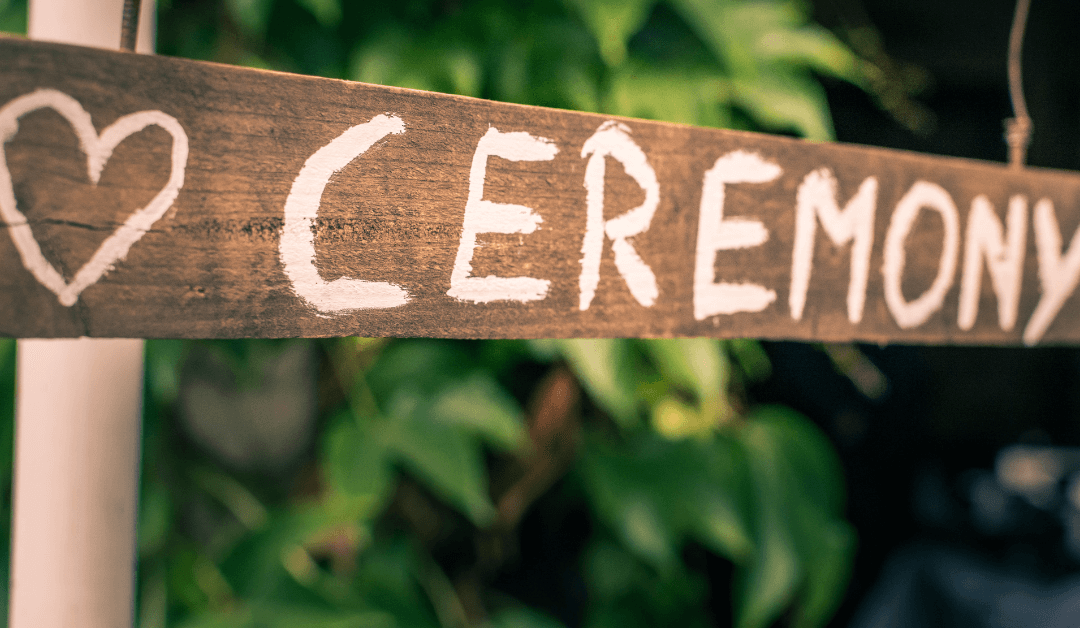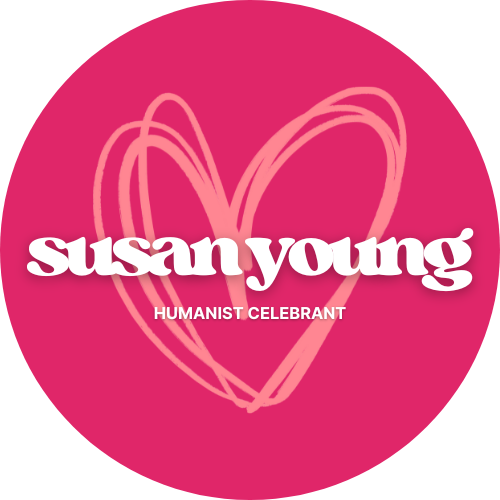
Understanding Humanism: The Role of a Humanist Celebrant in Non-Religious Ceremonies
Do you know what humanism is? It’s a way of looking at the world that emphasizes reason, ethics, and human agency, and it’s not based on religion. For people who don’t follow a religion, humanism can provide a meaningful alternative for important life events.
That’s where humanist celebrants come in. They’re people (ahem, like me) who are trained to officiate ceremonies like weddings, naming ceremonies, and funerals in a way that reflects humanist values and beliefs. Their role is to help you create a personalised and meaningful ceremony that reflects your values and beliefs, without the use of religious language or symbols.
So if you’re looking for a non-religious context for your wedding, naming ceremony, or funeral, a humanist celebrant might be a good option for you. They’ll help you create a ceremony that’s focused on celebrating you, your life, and your relationships in a way that’s meaningful to you. You get to create a ceremony that is personal, uplifting, fun, and engaging for your guests.
For example, a humanist wedding ceremony might focus on your love for each other, your shared values and commitments, and your hopes and aspirations for your future together. The ceremony might include readings from literature or poetry, personal vows and promises, and rituals or traditions that are meaningful to you.
Similarly, a humanist naming ceremony might focus on welcoming your new child into the world and celebrating their unique identity and potential. The ceremony might include readings or songs that reflect your family’s values and hopes for the child, as well as promises and commitments from parents and guardians to support and nurture the child.
Finally, a humanist funeral ceremony might focus on honoring the life and legacy of the person who has passed away and providing comfort and closure for loved ones. The ceremony might include readings or reflections on the person’s life and achievements, personal stories and memories, and rituals or traditions that are meaningful to the family and community.
The bottom line is that a humanist celebrant can help you create a ceremony that’s authentic, meaningful, and respectful to you and your values. The ceremony is designed to be a reflection of you and your values, rather than a prescribed set of beliefs or rituals. So if you’re looking for a way to mark life’s important events in a way that’s meaningful, inclusive, and respectful, a humanist celebrant might be a good choice for you.
There are many amazing humanist celebrants in Scotland who can help you, it’s important to find someone who you connect with and ultimately feels like you’ve “known all your life” (us celebrants are a friendly bunch of folks) – don’t be afraid to get in touch and have a chat to find out more about the person who will be conducting one of your most memorable life moments.
In the meantime, if you’re keen to learn more about being a Humanist (you probably already are very humanist) and how I fit the practical side of Mindfulness as well as Humanist values into my life, subscribe to my email list – I tell stories and give some interesting perspectives and guidance on life.
See you there!
Susan x

